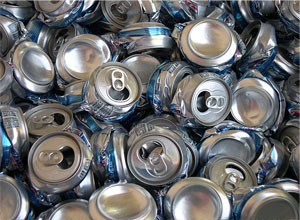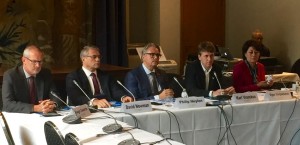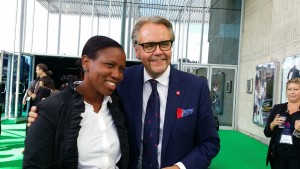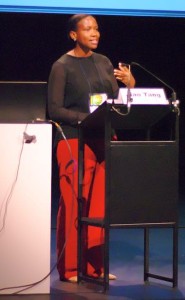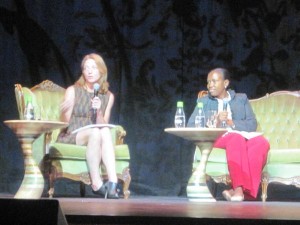By Mofe Binitie
On the 25th of September, we joined the rest of the world to celebrate the World Maritime Day. In light of this, we sat down with the renowned Economic Policy maker, Dr. Obiageli Ezekwesili to discuss the relationship between environment and the economy.

Dr. Obiageli Ezekwesili
Obiageli Ezekwesili is a distinguished chartered accountant. She was a co-founder of Transparency International, serving as one of the pioneer directors of the global anti-corruption body based in Berlin, Germany. She served as the Vice-President of the World Bank’s Africa division from May 2007 to May 2012. She was instrumental to the start of the viral #BringBackOurGirls campaign on social media, which trended internationally.
Mofe Binitie: We are really impressed with the work you did with Bring Back Our Girls. Considering that 500 days just passed. What are your thoughts?
Obiageli Ezekwesili: It’s a Tragedy of immense proportions that on day 511, our girls are still not back. Following their abduction on April 14th, I started off an advocacy the very next day. I would never have imagined it would take two weeks let alone a month to get the girls back. We cannot come to closure without recovering the girls as efforts can still achieve results; honest and true efforts. The parents, dads and moms continue to believe that we can get the girls back.
M.B: Given the correlation between environmental degradation (Desertification) and extremism in some regions of the world (Niger & Mali). What role do you think a strong environmental policy would have played to prevent Boko Haram?
O.E: You cannot have sustainable development government without integrating everything about the ecosystem of the society whether in a literal or technical sense. In our development process, we must include everything that has to do with the efficient management of our resources and everything that constitutes part of our terrestrial environment. Many people in Africa assume that the issue of the environment is too sophisticated for Africa. This is wrong; you cannot tackle poverty without a mastery of the environment. As the African continent looks to its development, it must look to the dangers of environmental degradation and the effects of climate change such as desertification and flooding. Environmental degradation takes away the viability of the African environment as a place to generate value and livelihoods. We should be preventive in action. Climate change mitigation efforts are very important. Many countries have not invested or thought about investing the environmental conversation. The people paying the price for the inertia are the poor and vulnerable. They must be prepared for the changes that are coming and must be part of the solution. The capacity within African governments that will enable the anticipatory approval and climate change has not been gathered. The required investment required to develop a climate resilient economy has not been deployed. We are at a rudimentary level of facing the climate challenge.
M.B: Given the impact of desertification, rising ocean levels and global warming will have on the world’s poor, do you think multilateral agencies like the World Bank should concentrate more on financing green infrastructure rather than dams and power.
O.E: I don’t think you can answer that question in a binary way. Africa needs all the energy it can get to support its growth. The backbone of economic development is the availability of power. Africa needs to power the continent. However, it is clear that some power will be pricey in the long term such as coal plants. However, this should not overtake the conversation that Africa can generate enough power to be the backbone of its development. Africa needs to shape its own agenda, where it reduces the cost of development to the poor. The Climate change agenda for Africa should be part of the development agenda for Africa. Both agendas are inextricably linked. We must develop strategies for dealing with them in a composite manner. Africa should get in the driving seat of its development agenda, rank its priorities, identify its own resources and develop local solutions, lay out the gaps and then invite multilateral agencies to help fill those gaps. Every development solution is local and Africa must lead in the tackling of its problems.
M.B: You have quite a distinguished profile which spans the World Bank, a ministerial position with the Nigerian government and now a board seat with the Global Ocean Commission. What do you think Nigeria can do to be at the forefront of protecting our oceans and combatting desertification?
O.E: When the oceans are not properly managed, all the pollution will be done in the ocean. Which is what we happening to the ocean presently. The Ocean is critical to life, the poor in the coastal regions depend on the oceans for their livelihood. We see that illegal fishing, pollution and narcotic activities become disastrous for communities along the ocean. For Nigeria, as a coastal nation it needs to be a champion for the governance of the oceans. There is a common assumption that the high seas are a no man’s land, and everybody is free to do as they please. This is chaotic for the world. The last time a global consensus was reached regarding the oceans was decades ago. New challenges have come up since then, we need to address this and prevent a repeat of the poor governance of the terrestrial environment
M.B: A World Bank internal report criticized the bank’s resettlement policy for large scale infrastructure projects. Given such criticism concerning the bank’s effort to finance large scale infrastructure projects, do you think the bank would be better served collaborating with social enterprises like the Grameen bank to eradicate poverty?
O.E: You need a logistical backbone for development. The important thing is how to integrate the welfare of your local populace with development. Governments must provide their citizens with an economic sense of dignity. What is awful is to dislodge people from their homes for the sake of development. We can achieve the two goals simultaneously by ensuring we are building eco-friendly infrastructure while putting the community as the center of all infrastructure projects. While I was at the Bank, we did our best to promote these goals, we didn’t always get it right and we won’t always get it right but keeping in line with best practice and holding ourselves and governments accountable is important. It would be unfair to countries that need to reduce the cost of doing business. However to romanticize social enterprises as a solution Africa’s problems is wrong. They are not the solution to Africa’s infrastructure problems. We need build national capacities in way that won’t disturb the rights and dignities of the populace.
M.B: Thoughts on the African Investment Bank (AIB)
O.E: The more the merrier. Africa needs $93billion annually to meet its infrastructure needs. You don’t get too sophisticated and become useless. There is a huge need for infrastructure; the AIB will help fill this gap. Africa should try to get the best deal and maximise value. I’ve said to leaders that nobody has the right to determine the course of your development trajectory. Every other party should be a facilitator or partner. You define the goals of your program. We need to build strong and effective national system for identifying our problem. Some of the problems we do intuitively could be solved using a scientific method for collating and analysing data.
M.B: Do you consider yourself to be an environmentalist?
O.E: I’m a friend of the environmental. We must have a sustainable environment. If not we will destroy the future. We are stewards and stewardesses of the environment. Our children must not pay for our misdeeds. However I am a pragmatic friend of the environment. As custodians of the environment, we have to be conscious of the fact that we generate our livelihood from the environment. We cannot force on Africa principles that will negate its development. Africa cannot also afford to repeat the mistakes of the developed world. I believe in renewable energy. Africa’s hydro potentials are huge with the right approach it can supply a large part of Africa’s energy. Africa must develop an adaptation agenda that will help it become climate resilient. Pragmatism is called for.
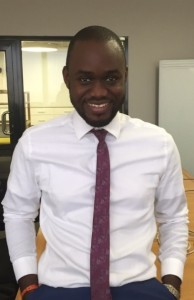
Mofe Binitie
This interview was conducted by Mofe Ibrahim Binitie. Mofe Binitie has over a decade of experience volunteering for non-profits and start-ups. He is passionate about driving societal change through civic engagement. He is a consultant in a leading consulting firm and a World Economic Forum Global Shaper.




